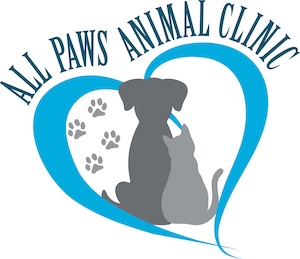How often do my pet’s teeth need to be cleaned and what kind of cleaning is best?
Dogs and cats should have a veterinary dental cleaning annually starting at age two, or sooner if they have some other oral health problem identified earlier. A veterinary dental cleaning under general anesthesia involves a complete oral examination by a veterinarian, cleaning both above and below the gum line, and dental X-rays. For more resources: https://avdc.org/animal-owner-resources/
How often does my pet need to be examined?
Physical examinations are recommended several times during the puppy and kitten booster period of time from 6-16 wks of age and again at time of neuter or spay. Otherwise, we recommend a visit at least 1x annually < age 5 yrs old and 2x annually > age of 5 yrs old. The exceptions for more frequent visits include if your pet is diagnosed with a condition that needs more monitoring and check ups by our doctors. (ie. Diabetes, Kidney Disease, Cushings, Addisons Disease, Severe Allergies, Dental Disease, Arthritis management)
At what age does my puppy or kitten need its first vaccinations?
Six weeks of age (then every 3-4 weeks until 16 weeks of age). This allows for the pet’s immune system to start producing its own antibodies while antibodies from mom start to wane. They must be at least 12 wks of age to receive the Rabies vaccine. Any vaccine administered prior to 6 weeks of age will likely not provide adequate immunity.
At what age should I have my pet spayed (female) or neutered (male)?
The procedure can be done at any age. However, we recommend allowing females to go through their first heat cycle for spaying. For large breed male dogs, we recommend waiting till closer to 10-12 months of age for their castration/neutering procedure.
I was told that if I get my pet spayed or neutered, it will become fat and lazy.
Proper diet and exercise will prevent pet obesity. Typically feeding slightly less than before the procedure will help with this since hormonal expression will change after a spay/neuter procedure. Spaying prevents certain problems later in life such as an infected uterus (pyometra) and mammary gland cancer. Neutering prevents problems with aggression as well as possible reduction in prostatic disease.
My pet has had vomiting and diarrhea and is not eating. What should I do?
Make an appointment to see us! Vomiting and Diarrhea are very broad/general symptoms where causes can range from minor to extremely life threatening. Our doctors can best assess your pet to determine how serious the issue is and the best treatment plan moving forward.
At what age do I start my dog or cat on Heartworm Preventative?
Six weeks of age for a puppy and 8 weeks of age for a kitten. Certain products also carry weight restrictions so be sure to check with us before giving your pet a preventive.
What is the normal temperature for a dog and cat?
100 – 102 degrees. Temperature is most accurate with a rectal thermometer.
Can my cat get declawed?
This procedure is not recommended across many veterinary communities. Declawing can cause paw pain, back pain, infection, tissue necrosis (tissue death) and lameness. Removing claws changes the way a cat’s feet meet the ground and can cause pain like wearing an uncomfortable pair of shoes. Improperly removed claws can regrow, causing nerve damage and bone spurs.
For more resources: https://www.humanesociety.org/resources/why-declawing-bad-your-cat
When does my pet lose its baby teeth?
The baby (deciduous) teeth begin to fall out beginning at 4 months of age (16 wks), and by 6 months of age, all of the adult teeth should be in. Dogs have 42 teeth and cats have 30.
My pet is scooting its hind end. Does it have worms?
Scooting is often the result of full anal glands, environmental allergies, or parasites. Most often the scooting is due to full “anal glands” which are scent glands that lie under the skin on either side of the anus. The veterinarian can express the glands to relieve the discomfort and treat with proper medication if infected and inflamed.
